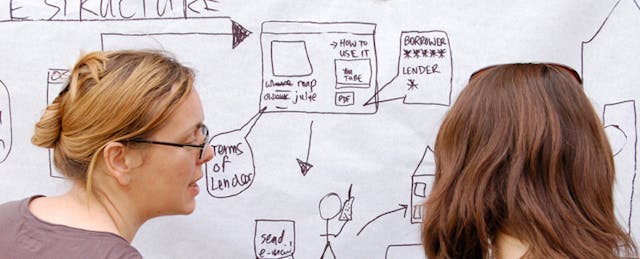A couple of weeks ago Scott Welch wrote an Edsurge opinion article in which he argued that edtech startups need to spend more time talking to teachers, to "get a handle on what technological solutions might have a positive impact."
Whilst I agree that working closely with teachers is an important part of the product development process, and that having a greater understanding of the problem is essential for successful design, this approach by itself is unlikely to lead to a product which has any significantly transformative impact on learning outcomes.
For edtech startups to be profoundly successful (ie. transform learning experiences on a grand scale) they really need to be innovative with their pedagogy as well as their technology. Otherwise, there is a danger that things they build will just end up replicating existing practices, only faster and shinier.
One sure way to foster pedagogical innovation is for edtech organisations to have educators on their team--ideally as co-founders. And I'm not just talking about any old kind of educator. I'm talking about a very specific breed: learning designers-educators with a deep and nuanced understanding of, and thirst for the pre-active (or 'planning') side of teaching.
Educators who are good at facilitating learning are of little value to edtech startups during the design phase--when you want to build a bridge you consult with builders, but you must employ and defer to an architect.
Learning designers, like architects, value process (specifying, ideation, prototyping and evaluation), plan in holistic ways (looking at the whole curriculum alongside individual learning experiences) and strive to capture and represent their designs for others to follow and build upon (check out design patterns for more).
Sadly, at the moment, learning designers lack presence and voice in the edtech scene. And as a result, I think education is missing out. Edtech startups need people like George Siemens, Dan Meyer and Chris Waugh in their team if they are to challenge dominant teaching and learning practices.
- George was one of the group that pioneered the original MOOC (see #change11 for example).The kinds of experiences that these 'old' MOOCs facilitate are much more pedagogically innovative than their contemporaries.
- Dan has built something beautifully simple yet pedagogically disruptive with 101qs. His design is tackling the dominant culture of math(s) education, and is a powerful professional development experience for teachers.
- Chris's Blogsync is another great situation where sophisticated pedagogical innovation is having a profound impact on an niche learning community.
None of these examples are particularly high tech. From what I can gather they have not come about as the result of mega-funding, but rather some deep thinking by people who 'get' what good learning looks like. And in each case there is a clear impact on professional learning.
So if any edtech startups out there are listening, hear this: if you want to have a significant and sustainable impact on education, you need to innovate with your pedagogy as well as your technology and business model. The best way to do this is to get some learning design expertise on your core team.
Do you have a learning designer on your edtech team? If so, let us know--leave a comment below.


